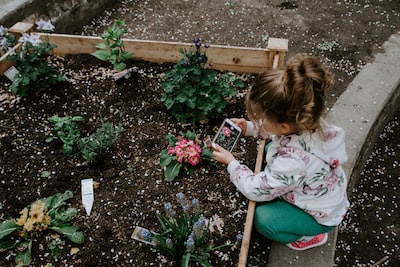
In a world where the concrete jungle seems to dominate, the idea of sustainable living in the city may appear like a far-fetched dream. However, with the rise of urban farming and small-scale agriculture, urban dwellers are discovering innovative ways to embrace a greener lifestyle right at their doorstep.
From rooftop gardens to community plots, the opportunities for cultivating fresh produce in the city are endless. As more people become conscious of their environmental impact, the trend towards sustainable living in urban areas is gaining momentum.
In this article, we explore simple steps for urban dwellers to take part in small-scale agriculture and pave the way for a more sustainable future right in the heart of the city. Whether it be growing herbs on your windowsill or participating in a local community garden, there are countless ways for city residents to connect with nature and reduce their carbon footprint.
Join us as we delve into the world of urban agriculture and discover the endless possibilities for sustainable living in the city.
Table of Contents
Benefits of small-scale agriculture
By starting a small garden or mini-farm, you can have fresh produce and connect with the earth. Small-scale agriculture has many benefits, like reducing your carbon footprint and promoting biodiversity. To begin your sustainable living journey, plan your garden layout and choose the right crops. Use resources wisely by composting organic waste and conserving water.
With dedication, you can create a thriving mini-farm that nourishes and helps the environment. Embracing small-scale agriculture is a step towards a greener future that benefits both people and the planet.
Planning your sustainable garden
As referenced in an article on Urban Farm Online, urban gardening can provide a myriad of benefits, including access to fresh, organic fruits and vegetables, reduced food mileage, and a sense of accomplishment. With limited space in urban environments, innovative techniques like vertical gardening, container gardening, and community gardens are increasingly popular choices for urban gardeners. These methods allow individuals to cultivate plants even in small spaces, bringing a touch of greenery and vibrancy to city settings. Through urban gardening, communities can come together to enhance food security, improve air quality, and foster a deeper connection to the environment.
Furthermore, urban gardening serves as a practical solution to address food insecurity in urban areas by empowering individuals to grow their own nutritious food. According to Urban Farm Online, transforming balconies, rooftops, and empty lots into flourishing gardens fosters self-sufficiency and resilience within communities. In addition to providing access to affordable, fresh produce, urban gardening initiatives also facilitate education on sustainable farming practices and the importance of local food production.
By promoting urban gardening as a feasible and rewarding endeavor, cities can work towards building a more sustainable future, one harvest at a time.
Choosing crops for small spaces
Urban Farm Online states that urban farming is a practical way to address food insecurity and promote sustainable living in cities. By utilizing spaces like rooftops, vacant lots, and vertical structures, urban farming maximizes resources and provides fresh, locally grown produce to residents. Additionally, urban farming builds community and connects people to the food system. Residents are involved in planting, cultivating, and harvesting, empowering them to play an active role in food production.
This collective effort strengthens community bonds and educates people on sustainable farming practices and healthy eating habits. Urban farming brings agricultural practices back into urban areas, creating a greener, more self-sufficient future.
Maximizing resources: composting and water conservation
Individuals can have a significant impact on the environment by recycling, composting, using renewable energy, and reducing water consumption. These sustainable living practices not only benefit the environment but also improve personal well-being and community resilience.
By embracing sustainable living practices, individuals can create a better future for future generations. Making conscious decisions about consumption, transportation, and energy usage can lead to a more eco-friendly lifestyle. Choosing organic and local foods, supporting ethical and sustainable brands, and reducing waste through mindful shopping are all steps towards sustainable living.
Together, we can work towards building a more sustainable world for ourselves and future generations.
Tips for maintaining a thriving mini-farm
Regular tasks on a mini-farm include weeding, watering, pest control, and checking plant health. To replenish soil nutrients and prevent depletion, use crop rotation. Proper pruning and trimming promote healthier plant growth and increase yields. Composting organic waste enriches soil and reduces the need for chemical fertilizers.
Setting up a rainwater harvesting system conserves water and ensures plants are hydrated during dry periods. Monitoring weather patterns and adjusting irrigation schedules prevent overwatering or underwatering, which can harm crops. Being proactive and attentive to the mini-farm’s needs fosters a thriving and sustainable agricultural environment.
Revolutionizing Agriculture: How MORZART TRADING is Making a Global Impact
MORZART TRADING is not just your average agricultural product manufacturer – they are a force to be reckoned with in the global market. From energy drinks to fresh produce, they have it all.
Global Import Export Group and their partners ATRAD Sales Limited and Morzart Trading Pty Ltd are on a mission to revolutionize the way we view small-scale agriculture. With their commitment to quality and fair trade practices, they have made a name for themselves as industry leaders.
If you’re looking to live sustainably and support local farmers, look no further than MORZART TRADING. They are the answer to all your agricultural needs, providing top-notch products that are sure to impress even the most discerning consumer.
Say goodbye to mediocre products and hello to a brighter, greener future with MORZART TRADING.
Summary
From rooftop gardens in Brooklyn to backyard chicken coops in rural Iowa, small-scale agriculture is quietly revolutionizing the way we think about food production. By prioritizing sustainability over profit, these dedicated individuals are not only feeding their families, but also nurturing the land and fostering a sense of community.
It may seem like a drop in the bucket compared to industrial farming, but the impact of these small-scale operations cannot be overstated. In a world where climate change and food insecurity are looming threats, embracing sustainable living practices is not just a choice, but a necessity.
So next time you bite into a ripe tomato from your neighbor’s garden or savor the taste of freshly laid eggs, remember that small-scale agriculture is not only delicious, but essential for our collective future. Let’s celebrate these unsung heroes and support their efforts to create a more sustainable, delicious, and interconnected world.






